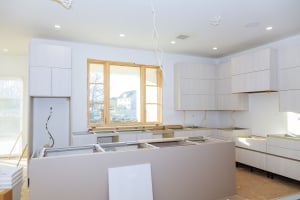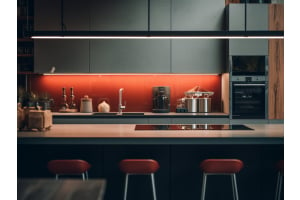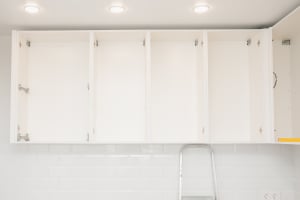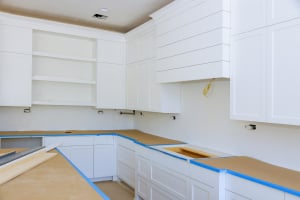Soundproofing your house is essential for safety, mental peace, and enhancing the quality of life. By eliminating unwanted noise from the external environment and keeping your conversations within the walls of your home, soundproofing ensures you don't have to deal with unnecessary trouble.
In this post, we'll share detailed insight about the best soundproofing materials–glass panels (in exterior and interior glass doors) and MDF–and which of the two is better.
What Is MDF Soundproofing?
MDF is short for ‘medium-density fiberboard', which is a popular type of engineered wood. It's made from residues of softwood, hardwood, wax, and resin, which makes it both economical and environment-friendly.
There are four types of MDF that are readily available:
- Plain MDF
- Ultra-light MDF plate
- Moisture-resistant green MDF
- Fire retardant red or blue MDF
All of these vary in pricing. The fire and moisture-resistant variants are the most expensive ones, but generally, all of these cost much less than solid wood.
MDF wood might not be as durable as solid wood, but it's better than most budget-friendly wood materials. It is also lighter than solid wood but heavier than plywood. Plus, MDF is easy to seal, paint, and handle, making it suitable for DIY home improvement projects. You can use MDF wood for kitchen cabinets, shelves, doors, window frames, wall panels, and even flooring.
The material is excellent at blocking sound because of the scattered fibers within each MDF panel. These randomly laid-out fibers give MDF a dense interior, which keeps sound from traveling through it.
Pros
- Denser than plywood and standard wood boards
- Excellent for thermal insulation
- Best for DIY home improvement projects
- Great at sound absorption
Cons
- Scratches and dents are difficult to hide
- Easily damaged by heat
- Fails to support a lot of weight
- Heaviness means it requires stronger anchoring and support (especially for wall-mounting shelves and cupboards)
What Is Glass Panel Soundproofing?
Glass panels for roofs, windows, walls, or doors are also becoming increasingly popular due to their soundproofing capabilities. You can count on glass panels for confidential meetings, conversations, and music rehearsals.
However, unlike MDF, glass panels are expensive; they also come in several styles and varieties. For soundproofing, one must assess glass by its construction type. The best glass types for soundproofing are as follows:
- Double-panel glass: This type of glass panel comprises two acoustic glass sheets with space between them. The space is filled with gasses like Argon and Xenon, which keep sound waves from passing through.
- Laminated glass: This type of glass panel comprises two glass sheets combined with plastic. It is stiffer than average glass, and the presence of plastic ensures better noise reduction.
- PVB interlayer glass: This is the same as double-panel glass except that the space between the glass sheets is filled with Polyvinyl Butyral (PVB), a type of rough resin that is good at blocking sound waves.
Pros
- Better styling options
- Weather and rust resistant
- Excellent thermal insulator
- Available in a variety of styles
- Great at soundproofing
Cons
- Expensive
- Difficult to install
- Loss of privacy
So, Which of the Two Is Best?
Glass panels are better for soundproofing, while MDF is better for sound absorption.
What's the difference between soundproofing and sound absorption? Soundproofing refers to the blockage of sound–if a room is soundproof, you cannot expect sounds to enter or escape the room if the windows and doors are closed. Sound absorption, on the other hand, is the reduction of echoes within a room. This means that if you're too loud, sound may escape the room, or if someone is honking their horn outside, you might be able to hear it.
Looking for tips on adding glass to interior doors or how tempered glass works in interior doors? Take a look at our latest articles.













